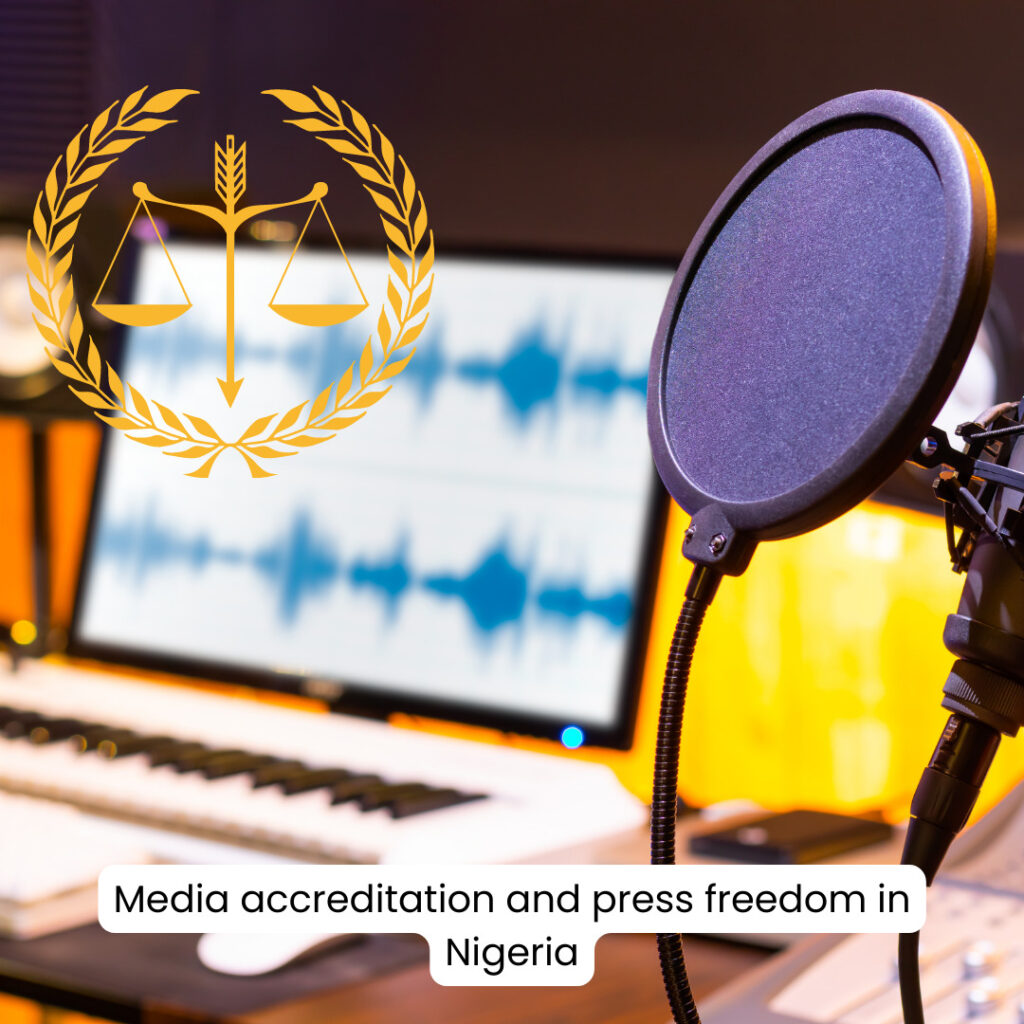Media Accreditation and Press Freedom in Nigeria
Press freedom is a cornerstone of democracy, serving as a vital check on power, a source of information, and a platform for diverse voices. In Nigeria, a country with a vibrant media landscape and a commitment to democratic values, the delicate balance between media accreditation and press freedom is a topic of significant importance. Accreditation, while necessary to maintain professionalism and access to official sources, must be implemented in a manner that safeguards the essential right of journalists to freely and independently report on matters of public interest. In this article, we delve into the world of media accreditation and press freedom in Nigeria, exploring their significance, key considerations, challenges, and implications for both journalists and society.
The Significance of Media Accreditation
Media accreditation is a process through which journalists gain official recognition and access to events, sources, and information. It serves as a means to distinguish professional journalists from unauthorized individuals, ensuring that credible news organizations are represented and that accurate reporting takes place.

Importance of Press Freedom
Press freedom is a fundamental human right that enables journalists to investigate, report, and express opinions without fear of censorship or reprisal. In Nigeria, press freedom is enshrined in the constitution and plays a vital role in promoting transparency, accountability, and public engagement.
Key Considerations in Nigeria
Balancing media accreditation and press freedom in Nigeria involves several key considerations:
- Professionalism: Media accreditation helps maintain journalistic standards and ensures that only qualified and credible journalists gain access to official events and sources.
- Access to Information: Accreditation provides journalists with the access they need to report on important events, issues, and public figures.
- Government Relations: The accreditation process can affect the relationship between the government and the media, influencing the free flow of information.
- Journalistic Independence: Ensuring that media accreditation does not compromise the independence and objectivity of journalists is essential.
Challenges and Opportunities
The interplay between media accreditation and press freedom in Nigeria presents both challenges and opportunities:
- Selective Accreditation: Authorities may use selective accreditation as a tool to control media coverage and limit critical reporting.
- Bureaucratic Hurdles: Complex and lengthy accreditation processes can hinder journalists’ ability to cover breaking news and time-sensitive events.
- Ethical Dilemmas: Striking a balance between responsible journalism and government requirements can raise ethical dilemmas for journalists.
- Promoting Professionalism: Accreditation can incentivize journalists to uphold professionalism and adhere to a code of ethics, thereby improving overall media standards.
Future Prospects
The future of media accreditation and press freedom in Nigeria holds potential:
- Transparency and Inclusivity: Implementing transparent and inclusive accreditation processes can foster trust and collaboration between journalists and authorities.
- Digital Platforms: As media consumption shifts online, ensuring that digital journalists and bloggers are included in accreditation processes is crucial.
- Legal Protections: Strengthening legal protections for journalists and reinforcing press freedom safeguards can create a conducive environment for robust reporting.
- Media Literacy: Educating the public about the importance of press freedom and the role of accredited journalists can enhance appreciation for credible news sources.
Conclusion
Media accreditation and press freedom in Nigeria are two sides of a coin that must be carefully balanced to preserve the integrity of journalism while promoting democratic discourse. By ensuring that media accreditation processes are transparent, efficient, and respectful of journalistic independence, Nigeria can create an environment where journalists have the access they need to inform the public while upholding the highest standards of professionalism. As Nigeria’s media landscape continues to evolve, a commitment to press freedom and responsible reporting will contribute to a more informed, engaged, and empowered citizenry, strengthening the foundation of democracy and civic participation.
